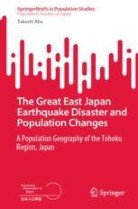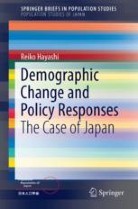
About this book series
The world population is expected to expand by 39.4% to 9.6 billion in 2060 (UN World Population Prospects, revised 2010). Meanwhile, Japan is expected to see its population contract by nearly one third to 86.7 million, and its proportion of the elderly (65 years of age and over) will account for no less than 39.9% (National Institute of Population and Social Security Research in Japan, Population Projections for Japan 2012). Japan has entered the post-demographic transitional phase and will be the fastest-shrinking country in the world, followed by former Eastern bloc nations, leading other Asian countries that are experiencing drastic changes.
A declining population that is rapidly aging impacts a country's economic growth, labor market, pensions, taxation, health care, and housing. The social structure and geographical distribution in the country will drastically change, and short-term as well as long-term solutions for economic and social consequences of this trend will be required.- Part of this series
- SpringerBriefs in Population Studies
- Electronic ISSN
- 2198-2732
- Print ISSN
- 2198-2724
- Editor-in-Chief
-
- Toshihiko Hara
- Series Editor
-
- Shinji Anzo,
- Hisakazu Kato,
- Noriko Tsuya,
- Toru Suzuki,
- Kohei Wada,
- Hisashi Inaba,
- Minato Nakazawa,
- Jim Raymo,
- Ryuichi Kaneko,
- Satomi Kurosu,
- Reiko Hayashi,
- Hiroshi Kojima,
- Takashi Inoue
Book titles in this series
-

-
The Economic Impact of Population Decline and Aging in Japan
The Post-Demographic Transition Phase
- Authors:
-
- Kohei Wada
- Copyright: 2024
Available Renditions
- Soft cover
- eBook

-
Great East Japan Earthquake Disaster and Population Change
- Authors:
-
- Takashi Abe
- Copyright: 2024
Available Renditions
- Soft cover
- eBook

-
Demographic Change and Policy Responses
The Case of Japan
- Authors:
-
- Reiko Hayashi
- Copyright: 2024
Available Renditions
- Soft cover
- eBook

-
Shrinking Japan and Regional Variations: Along the Sannyodo
- Authors:
-
- Fumie Kumagai
- Copyright: 2024
Available Renditions
- Soft cover
- eBook

